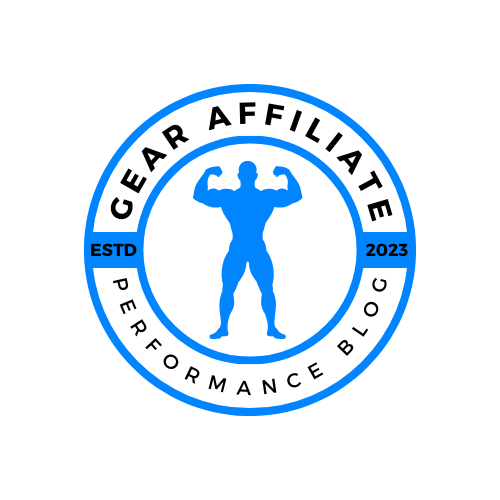
Table of Contents
Understanding Fitness Supplements: Types and Purpose
Fitness supplements are products designed to enhance physical performance, improve recovery, and support overall health. They come in various forms, including powders, pills, and liquids, catering to different needs and preferences. Among the most popular categories are protein powders, vitamins, minerals, amino acids, and pre-workout formulas, each serving a distinct purpose in an individual’s fitness journey.
Protein powders are widely utilized to aid muscle recovery and growth, making them particularly beneficial for individuals engaged in resistance training. These powders can be derived from various sources, such as whey, casein, soy, or pea. Incorporating protein supplements can help meet daily protein requirements, particularly for those following a high-intensity workout regimen or a vegetarian diet.
Vitamins and minerals play a crucial role in maintaining overall health and well-being. They help regulate various bodily functions, and deficiencies can lead to poor exercise performance and recovery. For individuals with limited access to certain foods, multivitamins may provide an effective way to fill nutritional gaps, ensuring that the body receives essential nutrients necessary for peak performance.
Amino acids, the building blocks of protein, are vital for muscle repair and growth. Branched-Chain Amino Acids (BCAAs) are especially popular among athletes, as they can help reduce muscle soreness and improve recovery times. Incorporating BCAAs into a fitness routine can be particularly advantageous during intense training sessions or when transitioning to new exercise regimes.
Lastly, pre-workout formulas are designed to enhance energy levels, focus, and endurance before workouts. These supplements typically contain a blend of ingredients such as caffeine, creatine, and beta-alanine. However, it is essential to use these products judiciously, as excessive consumption can lead to adverse effects.
While fitness supplements can provide benefits, it is essential to address common misconceptions regarding their necessity. Many individuals might believe that supplements are a substitute for a balanced diet; however, they should complement a well-rounded nutritional plan rather than replace whole foods. Understanding the various types and purposes of these supplements can help individuals make informed choices regarding their usage in achieving fitness goals.
Potential Benefits of Fitness Supplements
Fitness supplements have gained prominence in recent years, with many individuals seeking to enhance their physical performance and overall wellness. One of the primary potential benefits of these supplements is improved muscle recovery. After strenuous workouts, the body requires time to repair and rebuild muscle fibers. Supplements such as branched-chain amino acids (BCAAs) can aid in reducing muscle soreness and accelerating the recovery process. Research indicates that individuals supplementing with BCAAs often report reduced muscle fatigue and a quicker return to peak performance, ultimately allowing for more effective training sessions.
Another significant advantage of fitness supplements is the potential for increased exercise performance. Creatine, for instance, is a well-researched supplement known to enhance strength and power during high-intensity activities. Studies show that individuals using creatine can experience improved workout results, allowing for higher weights lifted and increased repetitions. This enhancement in performance contributes to more substantial gains in muscle mass over time, making it a valuable addition for those engaging in resistance training.
Moreover, fitness supplements can play a transformative role for individuals with dietary restrictions or specific health conditions. For instance, athletes following a vegan diet may struggle to meet their protein needs through food alone. Protein powders derived from plant sources, such as pea or rice protein, are excellent alternatives that ensure adequate intake. Similarly, individuals with lactose intolerance can benefit from enzymatic supplements that promote better digestion of dairy products when they choose to incorporate whey protein into their diets.
Incorporating fitness supplements into a structured fitness regimen may provide tangible benefits, supported by both user testimonials and scientific studies. However, it is crucial to approach supplementation with informed choices tailored to one’s personal health goals and dietary needs.
Are Fitness Supplements Necessary? An Objective Analysis
When it comes to the necessity of fitness supplements, the answer varies significantly depending on individual circumstances. Casual exercisers and elite athletes have different nutritional needs, which can guide their decision to incorporate supplements into their routines. For those who engage in moderate physical activity, a well-rounded diet rich in whole foods may provide all the essential nutrients needed to fuel performance and recovery. Foods such as fruits, vegetables, whole grains, lean proteins, and healthy fats typically offer a comprehensive array of vitamins and minerals that support overall health without the need for additional supplementation.
On the other hand, athletes participating in intense training may find that their dietary needs exceed what can be reasonably obtained through food alone. Factors such as increased caloric requirements, higher protein needs for muscle recovery, and the demand for specific nutrients can make fitness supplements beneficial in these cases. Collaboration with nutritionists is critical; they recommend assessing individual goals, dietary habits, and training intensity to determine when supplements may be advantageous. For instance, protein powders can offer convenience and support for muscle repair, particularly where whole food sources may be insufficient or impractical on a regular basis.
Moreover, lifestyle facets such as time constraints and dietary restrictions can also impact the adequacy of nutrition derived from food alone. Supplements can bridge these gaps, ensuring that individuals maintain optimal performance and health. However, supplementation should not be seen as a substitute for a balanced diet but rather as an adjunct that supports one’s fitness journey when needed. In this nuanced view, choosing to utilize fitness supplements becomes a personal and informed decision based on one’s specific needs and goals, guided by professional insights and personal experiences.
Choosing the Right Supplements: Considerations and Precautions
When venturing into the world of fitness supplements, it is crucial to approach the selection process thoughtfully. The myriad of options available can be overwhelming, necessitating a careful evaluation of several key factors. First and foremost, the quality of the supplements should be a primary consideration. It is advisable to opt for products that have undergone third-party testing to ensure that they meet safety and efficacy standards. Researching the brand’s reputation within the industry can also provide insights into their commitment to quality control.
Ingredient sourcing is another vital aspect to assess. Many supplements may contain fillers, artificial colors, or additives that could be harmful or counterproductive to one’s health goals. Therefore, scrutinizing labels, understanding ingredient sources, and opting for products derived from natural sources can significantly enhance the effectiveness and safety of supplement use.
Additionally, individual health needs must always be taken into account. Different people have varying nutritional requirements based on factors such as age, gender, activity level, and pre-existing health conditions. It is prudent to consult with healthcare providers or nutrition professionals before beginning any supplementation regimen. Expert advice can help identify necessary nutrients that may be lacking in one’s diet and can also prevent possible adverse interactions with medications or other health issues.
Another important consideration involves the potential risks associated with supplements. The supplement industry, while regulated, is not as strictly monitored as pharmaceuticals, leading to the risk of contaminated or improperly labeled products. Staying informed about the latest research, regulatory changes, and news related to the supplement industry can empower consumers to make educated choices. By taking these precautions into account, individuals can better navigate their fitness journeys while minimizing health risks associated with supplementation.
If you found this post to be helpful, then you may be interested in the rest of our blog page here.
At Gear Affiliate, we always want to give our readers more resources to research. Below are a few sources that we have found to be helpful relating to this topic.
Video Links: Video 1, Video 2.
Discover more from GearAffiliate
Subscribe to get the latest posts sent to your email.


